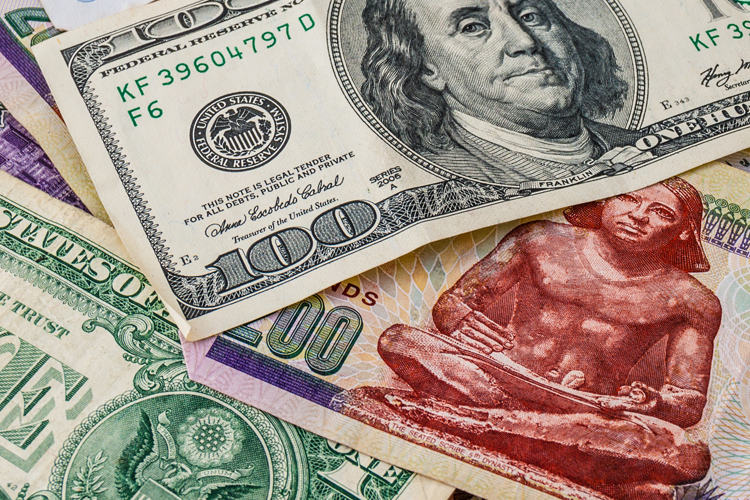 July 24, 2017
July 24, 2017
What is the Outlook for AM and PE in 2H17?
Egypt’s economic reform package – including several interest rate hikes, the elimination of energy subsidies, and the float of the Egyptian pound – is having a profound impact on businesses operating in the country and the region.
Head of Asset Management & Private Equity at EFG Hermes, Karim Moussa, took some time to reflect on how the recent changes are affecting the investment climate in Egypt and the impact that this will have on private equity and asset management funds in 2H17.
How is private equity fairing in light of new macroeconomic realities?
The reform package overall and the devaluation in particular are making private equity a more attractive asset class. Currency stability and effective reforms will create growth opportunities for private equity to inject capital into local businesses and capture their upside potential. This hasn’t been the case for the past 3 years but it is now. The obvious opportunities are in consumer plays and export-driven businesses, which on the long-term, are expected to do well because you have a large population with pent up demand for consumer goods as the economy starts to recover and create variables that drive an increasing export potential.
Of course, the risks have not been entirely eliminated. We are still dealing with geopolitical risk in the regional context and the economic reform program could potentially face delays but these are just issues that we’ll have to navigate. The reforms need to unfold systematically according to the agreed-upon schedule. If that happens, it’s just geopolitical risk on the regional context, which is something that the entire region must deal with. You’re never going to feel 100% secure. The biggest risk, currency volatility, is being dealt with, you can now at least plan for FX risk in your business plan which has given investors a strong measure of comfort for the time being and thus our generally positive outlook for the second half of the year.
It’s good to hear that the outlook for PE in 2H17 is positive. What are the key issues that investors need to consider going forward?
I think investors need to carefully consider what types of required equity returns they should pursue. The returns on money in the bank are high right now, the expected returns on any PE investment need to be higher to make it worthwhile for investors. At the same time, though, the huge potential for growth – of individual companies and the economy as a whole – could very well satisfy the need for high returns over time.
Consumer plays and exports definitely present the greatest opportunities in terms of sectors and this is the direction in which everyone is going but I think we need to think outside the box and look at what kinds of investment models are feasible and better suited to the current market. Conventional 7-10-year, USD 250 mn generalist PE funds won’t work in Egypt right now because no one wants to lock up funds for that long.
We need to come up with new transaction models that are more investor-friendly. I think the way to achieve that is to focus on specific niche industries in which you can build a platform with permanent capital through which you can extract returns, like we have done with Vortex our renewable energy platform. It’s an industry-specific fund that has achieved excellent returns over the past four years and now includes assets in six countries across Europe that generate more than 1,500 GwH of wind and solar energy a year. Today, Vortex provides about 350,000 households with electricity.
I think this is the type of thing that is going to be of interest to investors going forward rather than 7-10 year lock-ups in generalist funds. As we look for new opportunities in Egypt, our investment themes will remain the same.
Do you see the same potential for growth in AM as you do in PE?
Right now, Egypt’s capital market is gaining momentum, and investors are willing to deploy more money in capital markets. While the market is experiencing some short-term volatility, Egypt has a strong potential to deliver excellent returns in the long-term.
Over the next three years, I anticipate that there will be a window for IPOs in Egypt that will make PE and capital markets more interesting. We are seeing increased appetite in Egypt and a new type of AM investors who used to be wary and reserved when it comes to Egypt. They are starting to gain more confidence in the market but the market needs to grow and gain more depth in order to attract the big funds. That is going to take time to develop. The more we move in the right direction, the more funds we will be able to attract — it’s a snowball effect—we need to stay the course.
What is the Asset Management division doing to capitalise on the improving market conditions?
Right now, we’re consolidating our platform, launching targeted funds, and implementing segregated portfolio management. We are also centralizing distribution and client coverage as well moving ahead with regional expansion. As our Brokerage division expands into frontier markets, the buy-side of our operation will follow to provide services to clients outside of our traditional MENA market.
We’ve also taken steps to communicate our new products and services as we look to expand our client base. We’re the only firm in the region with a 15-year track record as investment managers. In the last 10 years, all of our funds have consistently outperformed the regional benchmark by c. 5% per year on average. We’re confident that we can continue to outperform and provide the best service to clients in MENA and new frontier markets.
